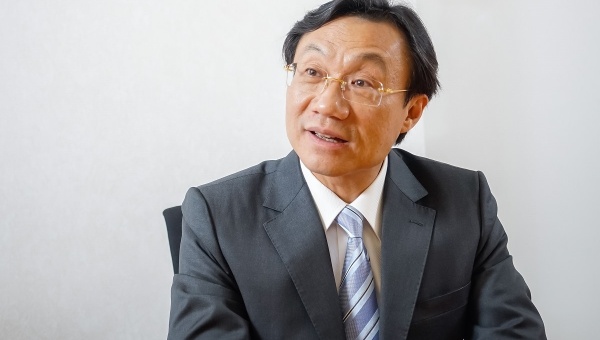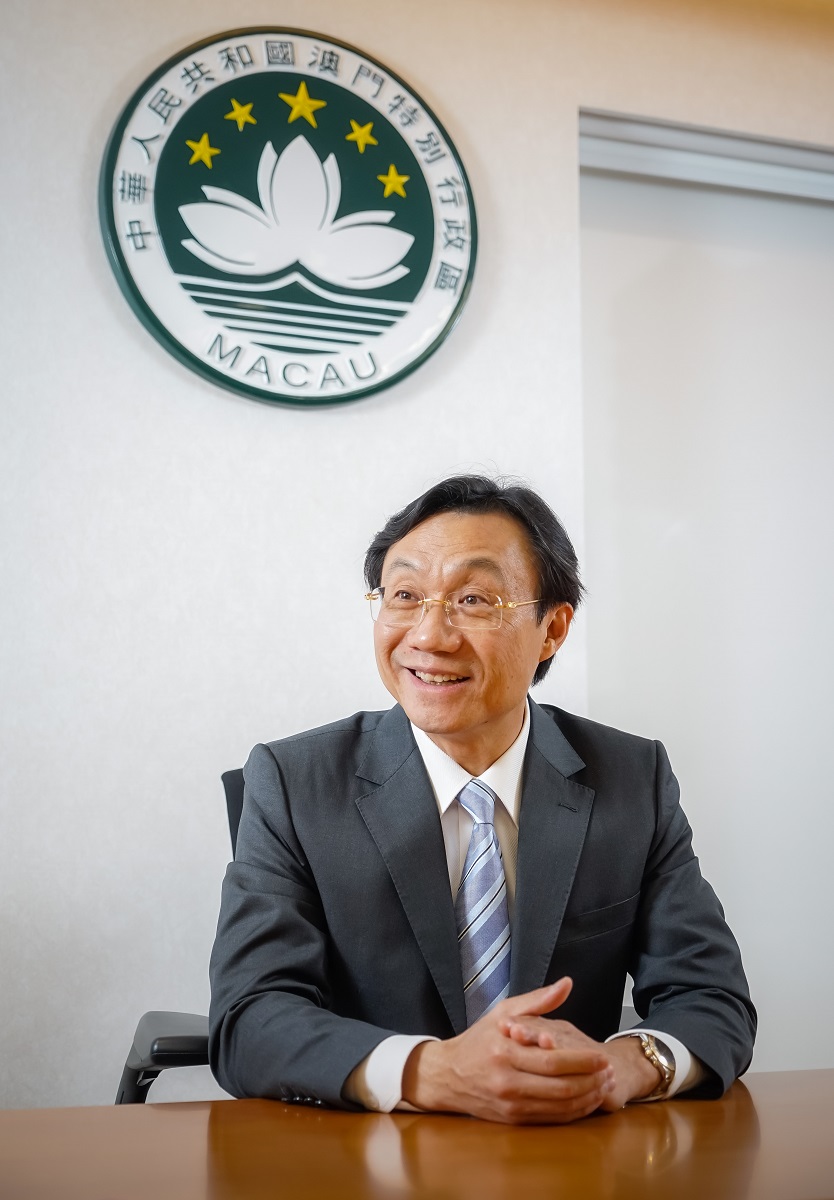Alexis Tam Chon Weng, Macau’s secretary for social affairs and culture, discusses the SAR’s advances in higher education
Standfirst
Every aspect of a Macau citizen’s life, from birth to education, from medical services to elderly care, is within the management of the Secretariat for Social Affairs and Culture. Alexis Tam Chon Weng, Secretary for Social Affairs and Culture of the Macau Special Administrative Region (SAR), talks about the development of higher education in Macau.
Going global is the goal
“Compared to Hong Kong, Macau began to develop higher education much later, but it was anything but tardy once it got started,” says Alexis Tam Chon Weng, Secretary for Social Affairs and Culture of the Macau SAR. “Macau did not have its first university, the University of East Asia, later called the University of Macau (UM), until the 1980s. Some 30 years later, there are 10 colleges in the territory, four public and six private.
“These 10 institutions are each special in their own way,” continues Tam. “Some of them, such as the UM and the Macau University of Science and Technology, combine comprehensive teaching with research. Others, including the Macau Polytechnic Institute (MPI), offer multiple majors focusing on teaching applications. There are also specialised institutions, such as the Institute for Tourism Studies, and the Kiang Wu Nursing College of Macau. I would say we have achieved quite an all-round and diversified development.”
According to Tam, there are currently over 32,000 tertiary students and more than 2,100 teachers in Macau, which has a relatively small population of around 650,900 and land area of 30 square kilometres. Local students account for approximately 54 per cent of the student body, while the remaining 46 per cent, or about 14,000 students, come from overseas. Around 90 per cent are from mainland China. “While we have yet to achieve an international profile, we are striving hard towards this goal as part of Macau’s future development,” Tam says.

Capitalising on opportunities from Macau’s Chinese-Portuguese development
“During his visit to Macau last year, Premier Li Keqiang presented to us a great vision, which was to develop Macau into a bridge between China and the Portuguese-speaking world,” says Tam “I am delighted to see that many of our institutions have followed this direction in recent years, accepting students from Portuguese-speaking countries, including Brazil and Angola. Macau has become a place for nurturing Chinese-Portuguese talents.”
“Portuguese remains one of our official languages after Macau’s return to China,” Tam says. “To make Macau a bilingual city unlike any other in China, or even in Asia, I have been more proactive in allocating resources to Portuguese language-education in my current position. Bilingual cities like Hong Kong, Singapore, Shanghai, and Beijing developed with English as their second language. Therefore, Macau, as a Chinese-Portuguese city, will enjoy some unique advantages while facing less competition. After all, Portuguese is one of the most widely spoken languages in the southern part of the world, and we should gradually strengthen our advantage in this area.
“For example, both the government and the private sector are offering scholarships for students who wish to study in Portugal,” says Tam. “There is also financial assistance available for the development of master’s degree programmes for teachers. Furthermore, we are collaborating with institutions in the mainland and elsewhere to foster suitable talents in Portuguese teaching. Last year, the MPI even jointly established the Chinese-Portuguese-English Machine Translation Laboratory with the Guangdong University of Foreign Studies, a few EU-based institutes, and a technology company from the mainland.
“In doing so, the MPI ventures to integrate new technology with teaching materials, further capitalising on its advantage in Portuguese teaching and research while providing more effective support for Portuguese teaching in the mainland as well as Sino-Portuguese cooperation in economic, trade and cultural development,” Tam says.

An interest-free loan for language studies
“The Macau government remains committed to fostering local talents, and language skills are one of the key elements,” says Tam, speaking of advances made in language training. “Talents who are able to master multiple languages tend to outperform others in terms of global perspective and experience, with relatively higher competitiveness. As a result, the Higher Education Services Office launched the Interest Subsidy Scheme for Language Training of University Graduates in partnership with six local banks this March.”
The scheme allows Macau’s degree-holding permanent residents to apply for a loan if they have enrolled in training programmes of Putonghua, Portuguese, or English abroad. The loan covers tuition, cost of living and transportation fees. The government will provide a subsidy on the loan interest for a maximum term of two years, up to an amount of 360,000 Macau patacas.
This unprecedented value-added programme is applicable to all Macau permanent residents who are university graduates. “For example, if you are a UM graduate, you can apply for this loan to study Portuguese in any Portuguese-speaking country. Or if you have graduated from a university in the US, and are fluent in English, you may apply for this loan to study Putonghua in Beijing or Shanghai,” says Tam. “Imagine someone who is already a professional, say an engineer or accountant. If he or she spends one or two years studying a second or third language overseas, there will be significant improvement in language skills. Professional skills coupled with multiple languages certainly give a big boost to competitiveness in a global setting.”
Tam stresses that this scheme is a brand-new concept, and that successful applicants can receive an interest-free loan to study an additional language overseas, and increase their own value. This shows that the Macau government is investing considerable amount of resources in talent training, he says.
ref:http://www.educationpost.com.hk